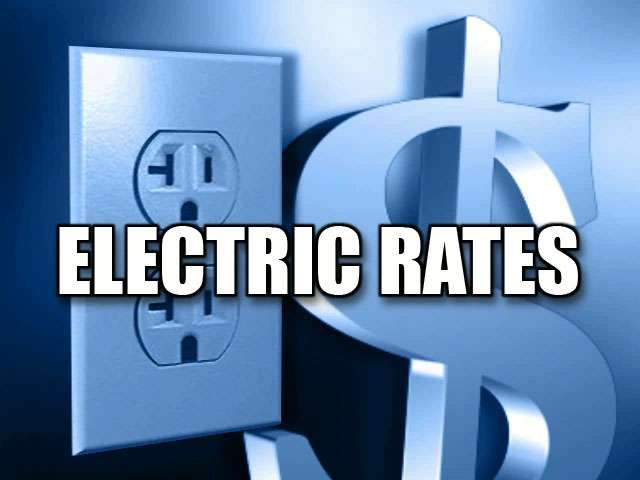 Tallahassee Reports has obtained a copy of the 140 page draft report of the electric rate case study that has been discussed over the last several months. The study is highly technical and full of detailed tables. Tallahassee Reports has reviewed the information, and what follows, is an attempt to take highly technical information and explain what it means to those who pay the electric bills in Tallahassee.
Tallahassee Reports has obtained a copy of the 140 page draft report of the electric rate case study that has been discussed over the last several months. The study is highly technical and full of detailed tables. Tallahassee Reports has reviewed the information, and what follows, is an attempt to take highly technical information and explain what it means to those who pay the electric bills in Tallahassee.
The bottom line is the study indicates that, even though electric consumption is projected to be down, the COT electric utility needs $178 million more in revenue than existing rates will produce from 2012 to 2016.
The largest deficiency, $43 million, occurs in 2016 and is not addressed in the proposal by the city consultant, RW Beck.
Instead, the proposal calls for electric customers to pay approximately $134 million in higher rates from 2012 through 2015. In the short term, for fiscal year 2012, the plan means electric customers would pay $31 million more in rates followed by smaller increases in each of the next three years.
In the end, base rates would increase approximately 25% from fiscal year 2012 to 2015.
Base rates are the part of the electric bill that pays for operational expenses like salaries, benefits, system maintenance, debt service and the $22 million transfer to the general fund. The total electric rate is the combination of the base rate and the cost of fuel – which the COT has little control over.
The residential rate impact of the proposal on a $250 monthly electric bill would be 11% in fiscal year 2012 or $27.50. For a restaurant with a current monthly bill of $4000, the new bill would increase by approximately $440 or over $5000 per year.
The detailed study indicates that overall consumption will decrease by 1.5% over the period of the study and that approximately $10 million in rates will be used to pay down the loan taken out by COT to pay for smart meters.
It is important to point out that the study by RW Beck relies on information provide by the COT and their rate proposal is a starting point. Rate increases could be offset by deferring maintenance expenses and using revenues in the Electric Operating Reserve. This approach was used last year to avoid a rate increase to the tune of $20 million.
RW Beck also analyzed the COT water and wastewater functions and concluded that there is $28.7 million deficiency from 2012 through 2016. Their proposal calls for a 10.8% increase in water rates and a 4.3% increase wastewater rates in 2012. The combined increase would raise rate revenue by $4.6 million in 2012.

In addition to my previous comments, it looks like the ‘off peak rates’ program, designed to save utility customers money, is working and the city’s bad spending habits are causing revenue to be lower than expenses. A budget of almost $1,000,000,000 is patently absurd for a town of 165,000 people.
Well, we did it. We have saved energy as our city told us to do and now we are having our rates go up because we saved so much the city is not making enough money to cover its outrageous budget. The same thing happened in 1974 during the Arab Oil Embargo. A budget of close to $1,000,000,000 for a town of this size is ridiculous and our city should be ashamed.
Wasn’t it just announced that we were over charged last year?? Maybe part of the problem is all the fees we pay the consultants to over-analyze everything!!
i agree! What was that, less than 6 months ago? What’s the point in telling everyone there’s a surplus, getting everyone all riled up about wanting their money back and then tell us they have to raise rates to raise $178M? Not sure if they can’t add or have no experience in public relations, or both.
so, WHY are we needing a rate increase again? What will the revenue go for? CEO BONUSES? FORGET IT! and you’re smart meters SUCK! I never had any problems until they were installed!!! now my bill is NEVER the same, not by a long shot! $100 one month, $350 the next? take them back, then you’ll have NO REASON TO INCREASE!